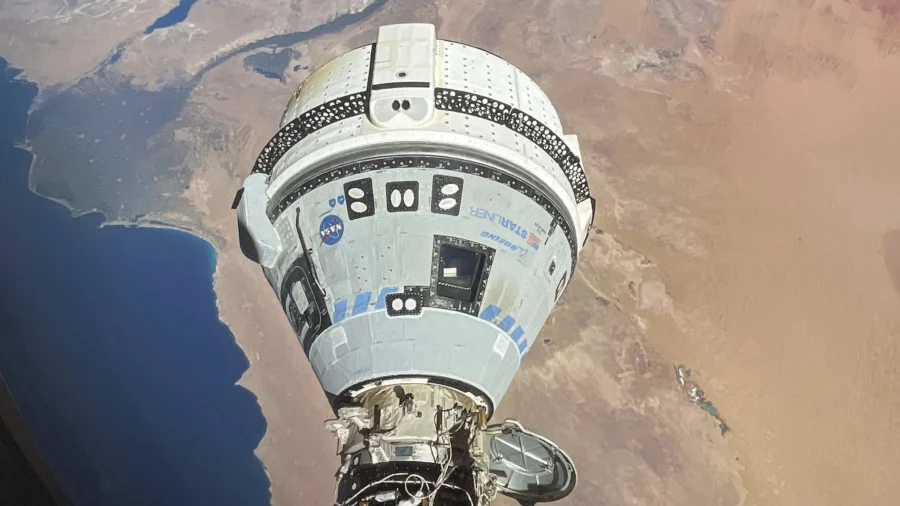Two NASA astronauts currently in the International Space Station will continue to stay there until technical problems with their Boeing Starliner capsule are fixed, officials said on July 25.
Thruster failures and helium leaks in the Starliner capsule have caused the month-plus delay for NASA crew Butch Wilmore and Suni Williams, according to officials. The two were meant to stay for a week and were scheduled to return in mid-June.
The goal is to bring Mr. Wilmore and Ms. Williams back aboard Starliner, said NASA’s commercial crew program manager Steve Stich, but mission managers are not ready to announce a return date.
“We’ll come home when we’re ready,” Mr. Stich said.
Alternative plans are also under consideration, according to Mr. Stich. The SpaceX Dragon capsule could be another means of transport from the space station.
“NASA always has contingency options,” he said.
Five thrusters failed as the capsule approached the space station on June 6, a day after liftoff. Four have since been reactivated.
Engineers with NASA and Boeing last week tested thrusters in New Mexico, trying to understand what went wrong. The tests simulated in-flight conditions when the capsules approached the space station, as well as stress-case firings when undocking and deorbiting.
Mr. Wilmore and Ms. Williams arrived at the orbiting laboratory on June 6 and joined other crew for scientific and maintenance activities.
NASA started hiring private companies to shuttle its astronauts to and from the space station after the space shuttles retired, paying SpaceX and Boeing billions of dollars.
Boeing’s Starliner capsule is currently undergoing testing. Boeing’s initial attempt to send its unmanned capsule to the space station failed in 2019 due to software issues. It succeeded in 2022, though more issues cropped up later.
Boeing’s effort to launch Mr. Wilmore and Ms. Williams to the space station was met with some setbacks. A countdown was halted on May 6 two hours before liftoff over issues that required weeks of extra scrutiny. Another attempt on May 29 was halted less than four minutes before liftoff because of a glitch with a launchpad computer.
The Associated Press contributed to this report.

